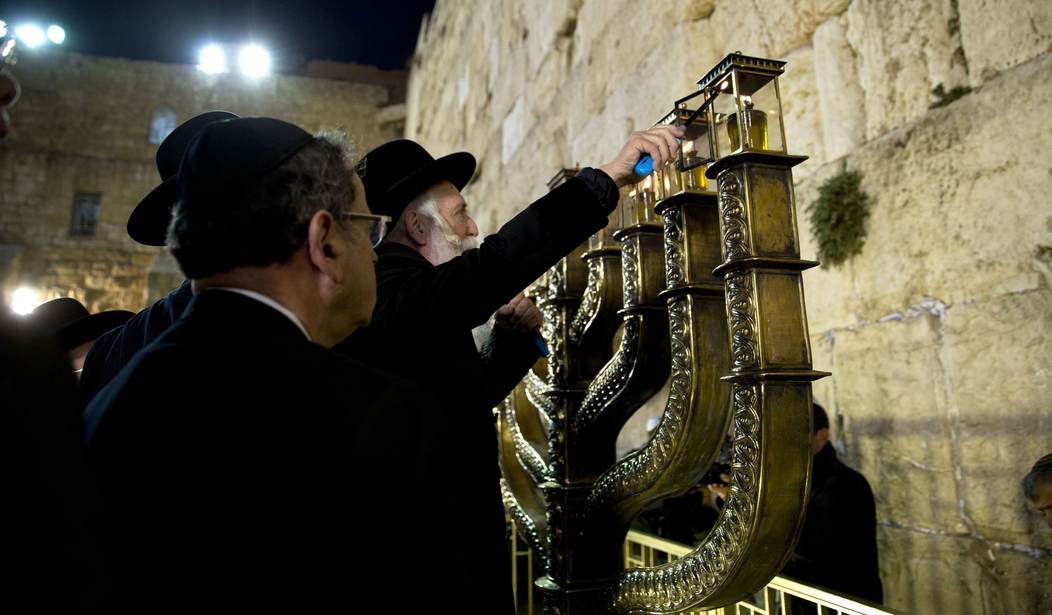Beginning with their enslavement in Egypt, when Pharaoh ordered Hebrew midwives to murder all newborn Jewish males, throughout Israel's captivity under the Babylonians and the Assyrians, to the Holocaust, Israel has been targeted for destruction.
But long ago God promised the prophet Jeremiah that Israel would cease to be a nation only when the sun, the moon and the stars had stopped shining. “‘Only if these decrees vanish from my sight,’ declared the Lord, ‘will the descendants of Israel ever cease to be a nation before me.’”
The feast of Chanukah—the word means ‘dedication’ in Hebrew—commemorates an event in Israel’s history when God miraculously intervened to save his people from destruction at the hands of a genocidal maniac.
Around 333 B.C., Alexander the Great commenced with his victorious progress through the ancient world of the Eastern Mediterranean. After conquering the Persian Empire, Hellenism spread throughout the old world of Asia. The Jews living in Palestine quickly found themselves surrounded by Grecian culture.
When Alexander died, he had no son to whom he could bequeath his kingdom. His empire was divided into four parts. But by 175 B.C. it again fell into the hands of one man, Antiochus IV Epiphanes.
Antiochus was the Adolf Hitler of the inter-testament period—the years which intervened in between the events of the Old and New Testaments.
Like Hitler, he was obsessed with exterminating the Jewish race.
He began with the slaughter of the inhabitants of Jerusalem and the desecration of the Temple. Alfred Edersheim explains what happened in his book, “The Life and Times of Jesus the Messiah:”
“All sacrifices, the service of the Temple, and the observance of the Sabbath and of feast days were prohibited; the Temple at Jerusalem was dedicated to Jupiter Olympus; the Holy Scriptures were searched for and destroyed; the Jews forced to take part in heathen rites; a small heathen altar was reared on the great altar of burnt offering—in short, every insult was heaped on the religion of the Jews, and its every trace was to be swept away.”
Recommended
The “final profanation” of the Temple was the slaughter of a pig on the sacrificial altar. This occurred on the 25th Kislev, the month that generally corresponds to our December.
It is important to understand that the Jewish Temple was more than just the place where Jews worshipped. It was also the center of their culture. It is no stretch to say that all of Jewish life emanated from the Temple in Jerusalem.
A deliverer rose up named Mattathias. Although greatly outnumbered and overpowered, the Jews began a campaign of guerilla warfare against Antiochus and his Syrian armies.
Erdersheim explains, “Mattathias died before it came to any actual engagement with the Syrians. But victory after victory attended the arms of his son, Judas the Macabee, till at last the Temple could be purified and its services restored exactly three years after its desecration on 25 Kislev, 165 B.C.”
When the Jews re-entered the city of Jerusalem and the Temple, there was only enough of the special oil to light the menorah and keep it burning for one day. But the oil miraculously burned for eight days while more was being prepared.
Thus began the first Chanukah, the Feast of Dedication, also known as the Festival of Lights. Jehovah had once again demonstrated his steadfast love and faithfulness to his people.
The events leading up to the attempt by Antiochus to destroy the Jewish Nation, including the profanation of the Temple, were prophesied in vivid detail in the Old Testament book of Daniel. In the New Testament, the Feast of Dedication is mentioned explicitly in John’s Gospel and was celebrated by Jesus and his followers.
In contrast, The Bible never refers to Christmas explicitly or its celebration—the word Christmas does not appear in the Bible nor was it celebrated until more than 300 years after the death of Christ.
Christians would do well to remember the faithfulness of God to the Jews on that first Chanukah. Had Antiochus successfully waged a war of genocide against the Nation of Israel, there would have been no Jewish woman named Mary to become the mother of Jesus Christ.
As you wish friends and family Merry Christmas this year, you might also like to wish them Chanukah Sameach. Without Chanukah, the Celebration of Christmas would not be possible.
Gregory J. Rummo is a Visiting Instructor of Chemistry at Palm Beach Atlantic University and a Contributing Writer for The Cornwall Alliance for the Stewardship of Creation. The views expressed in his columns are his own.

























Join the conversation as a VIP Member